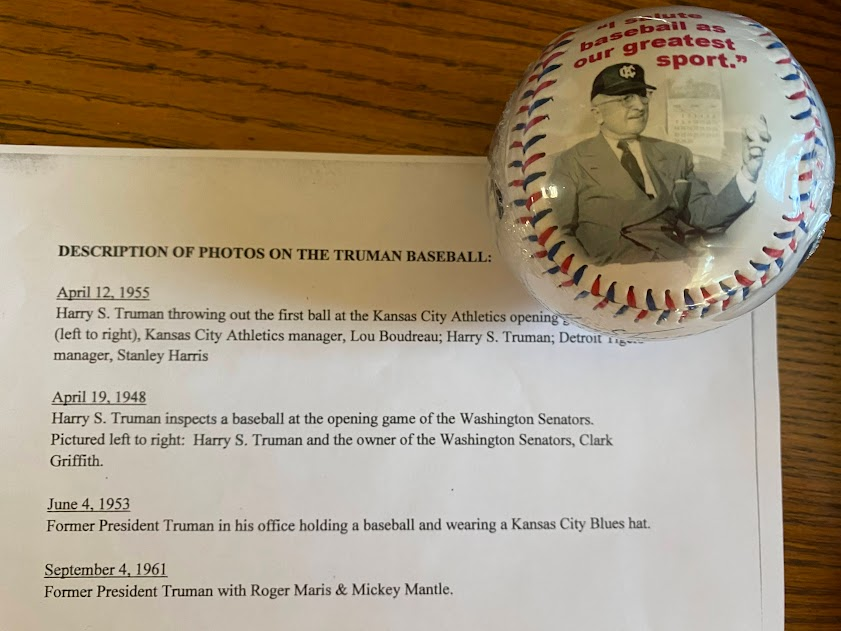On the road again, soon. It's good to be heading back to Ottawa for this conference, which has failed to convene in two of the last three years. My sixteenth time presenting, I think.
==
Thursday, March 23, 2023
6:00 p.m.
Pre-Game Reception, optional
421 South Elm Street
Ottawa, KS 66067
Angry River BBQ and drinks are provided for attendees at no additional charge.
Friday, March 24, 2023
7:45 a.m.
Registration and Breakfast
8:15 a.m.
Welcome
Andy Hazucha, Conference Coordinator
Reggies Wenyika, OUKS Campus President
8:30 — 9:15 a.m.
Morning Keynote Address:
Morning Keynote Speaker: Brad Balukjian, author of The Wax Pack
Location: Schendel Conference Center
9:30 — 10:30 a.m.
Concurrent Sessions A
Session A1: Baseball's Eccentric Characters
Location: Hasty Conference Room
Chair: Jordie Smith, Ottawa University"He's Number One: The Lasting Legacy of Old Hoss Radbourn's Digitus Medius"Shawn O'Hare, Carson-Newman University
"The Ugly Truth about a Beautiful Sport: Ted Sullivan and Racism in the Early Days of Baseball"Pat O'Neill, Independent Scholar
Tom Coffman, Independent Scholar
"Characters of the Game: Virtue, Integrity and Eccentricity in Our Pastime" Phil Oliver, Middle Tennessee State University
Session A2: The Economics and Psychology of Baseball
Location: Zook Conference Room
Chair: George Eshnaur, Ottawa University"Scouting vs. Statistics: Wisdom Lost in Numbers"Peter Jacobsen, Ottawa University
"Empirical Shifts in Major League Baseball Roster Management: Effects of the 1976 Labor Agreement"Chris Azevedo, University of Central Missouri
"Automatic Strike Zone? Four Human Views of a Pitch Reduced to a Computer's Ruling"Joc Collins, Carson-Newman University
10:35 — 11:35 a.m.
Concurrent Sessions B
Session B1: Baseball in Culture
Location: Hasty Conference Room
Chair: Jordie Smith, Ottawa University
"What's in a Name? Cleveland Indians to Guardians: How a Team's Name Feels to the Fans"
Ken Moon, Iowa Western Community College
"Multiversal Language: Sports, Esperanto, and a Passport to Many Worlds"
David Prihoda, Ottawa University
Session B2: Kansas Baseball History
Location: Zook Conference Room
Chair: Steve Foulke, Ottawa University"Early Baseball Programs at Kansas Colleges"Doug Wright, Independent Scholar
"Baseball Goes to Town: Bushong and Comiskey, Kansas"Mark Eberle, Fort Hays State University
"Quiet Giants: Jackie Mitchell, JL Wilkinson, and the Wichita Monrovians; Amplifying Baseball's Less-heard Voices"Kyle Belanger, Springfield College
Maeve Bolin, Lansing High School (KS)
11:45 a.m. — 1:15 p.m.
Luncheon and Afternoon Keynote Address:
Location: Schendel Conference Center
Afternoon Keynote Speaker: Andre Dawson
1:30 — 2:30 p.m.
Concurrent Sessions C
Session C1: Baseball History
Location: Hasty Conference Room
Chair: George Eshnaur, Ottawa University"Baseball at 47 Degrees: Early Baseball in Northern Minnesota"Eric Berg, Bemidji State University
"Lou Gehrig's Auto Accident on December 27, 1937, in Jefferson City, TN: Many Questions and Some Answers"Gerald C. Wood, Carson-Newman University
Session C2: Baseball Rants, Baseball Cards
Location: Zook Conference Room
Chair: Lyn Wagner, Ottawa University"Baseball, Madness, and Losing It"Justin Clarke, Ottawa University
"Don't Just Collect. Display Your Collection"Darrin Daugherty, Independent Scholar
"The Boom of Baseball Card Collecting: It Might Look Different Than You Remember"Alan Boelter, Ottawa University
2:35 — 3:35 p.m.
Concurrent Sessions D
Session D1: Baseball Icons and Unknowns
Location: Hasty Conference Room
Chair: Mike Webber, Franklin County Historical Society"Two Writers, One Game: Roger Angell and Ron Darling"Sarah D. Bunting, TomatoNation.com
"Lou Reynolds: The 'Grand Old Man' of Baseball in Kewanee, Illinois"Dean Karau, Independent Scholar
"Reconsidering the 'Losing Pitcher'"Warren Tormey, Middle Tennessee State University
Session D2: Baseball in Literature
Location: Zook Conference Room
Chair: Phil Wedge, University of Kansas"'Oh you little yellow house': Ring Lardner's Busher Figure as Fetish Object"Scott D. Peterson, University of Missouri-St. Louis
"From Fowler to Robinson, from Gilead to Home"Steve Andrews, Grinnell College
"Weaving Baseball Facts (and Cubs Curses) into Thriller Fiction"Dennis Hetzel, Fresh Angle Communications
3:40 — 4:40 p.m.
Session E: Baseball Fiction, Poetry and Creative Nonfiction
Location: Hasty Conference Room
Chair: Shannon Dyer, Ottawa University"Your Best Gibbie Story from Breakfasts with Mudcat"Daniel T. Durbin, University of Southern California
"Nine Innings of Musings: Baseball History through the Prism of Poetry"Nicholas Bush, Motlow State Community College
"Excerpt from The Last American Boy: A Counterfactual Novel-in-Progress"Scott D. Peterson, University of Missouri-St. Louis










